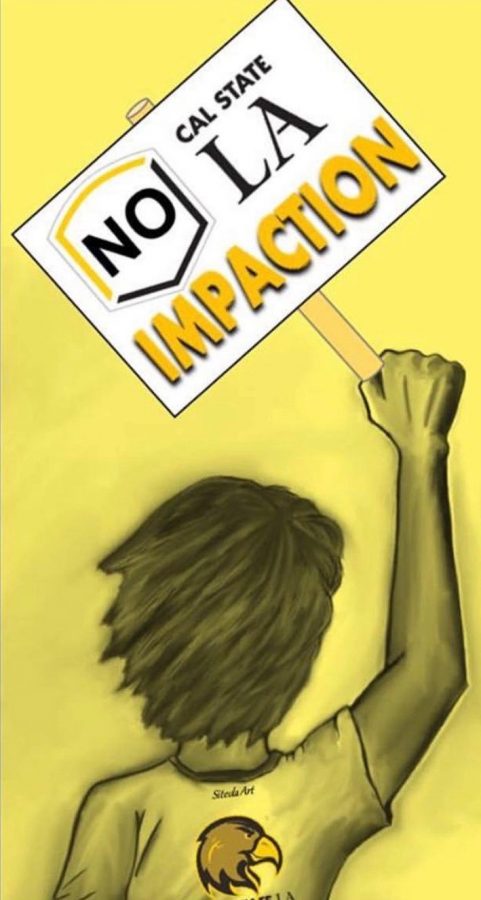The student struggle against impaction has exposed all that is rotten in the California State University (CSU) system. That effort’s most recent actions occurred at the Academic Senate meeting on Tuesday, May 7, and a sit-in at the administration building thereafter.
The Academic Senate is one of the “shared” governance bodies in which administrators are largely unaccountable, and which does not adequately represent the constituent body it claims to represent.
Among the senators with voting power, seven are deans of departments and only two are staff. Other administrators also sit in on those meetings. Even still, thanks to faculty who listened to student voices, the Senate voted 21 in support, 21 opposed to the ASI resolution calling for the removal of President Covino, Provost Lynn Mahoney and Vice Provost for Enrollment Services Tom Enders—three top administrators at Cal State LA. Then, the chairperson cast her own vote against the resolution and defeated it.
The CSU system is underfunded in one of the richest economies on earth. As a result, this school system has betrayed its original plan to serve, for free, all qualified students who wish to attend. Under-funding has led administrators to draft policies that exclude future students based on grades or test scores.
Sometimes the worst aspects of exclusion, such as the use of SAT scores (i.e. family wealth scores), may be watered down to make exclusion more palatable to the community that is being excluded. The overall trend remains the same; however, funding stagnates, admissions standards increase, costs of university functioning are levied onto students, and the funding we do receive, as well as our tuition money, goes toward administrative bonuses and gentrification projects on our campuses which are designed to attract a wealthier student base.
Meanwhile, Black student enrollment continues to decline (down to 2.5 percent in the current freshmen class), and students face housing and food insecurity, burdensome parking fees, and long waits for mental health counseling.
Our administrators tell us they cannot do anything to prevent impaction; that funding decisions are out of their hands, and that they are beholden to the state and the chancellor’s office. What our administration is saying, then, is that they are ineffectual; that despite being paid hundreds of thousands of dollars for their services, they can’t really help us. Their tired efforts within the bureaucracy ensure that our school continues to lack.
This administration is not just complacent, they have also abused their power. One ironic case in point, which was referenced in both the ASI resolution and in student testimony at the Senate meeting, is that a school building on campus named after Martin Luther King, Jr. is uninhabitable: elevators and automatic sliding doors have been out of service for the better part of the semester, ceiling tiles are falling off, and asbestos lurks in its walls, yet administrators plan to move their own offices into the brand new physical sciences building where they will be even more insulated from the effects of scarcity and mismanagement.
Students, and many faculty, are rejecting this model of leadership for the CSU. Bureaucratic inertia and administration-dominated, un-shared governance have thus far protected Covino, Mahoney and Enders.
However, we need new voices to lead Cal State LA. Our leadership must treat our current condition as the crisis that it is, and publicly denounce politicians whose backward priorities have justified under-funding and exclusion at public universities.








